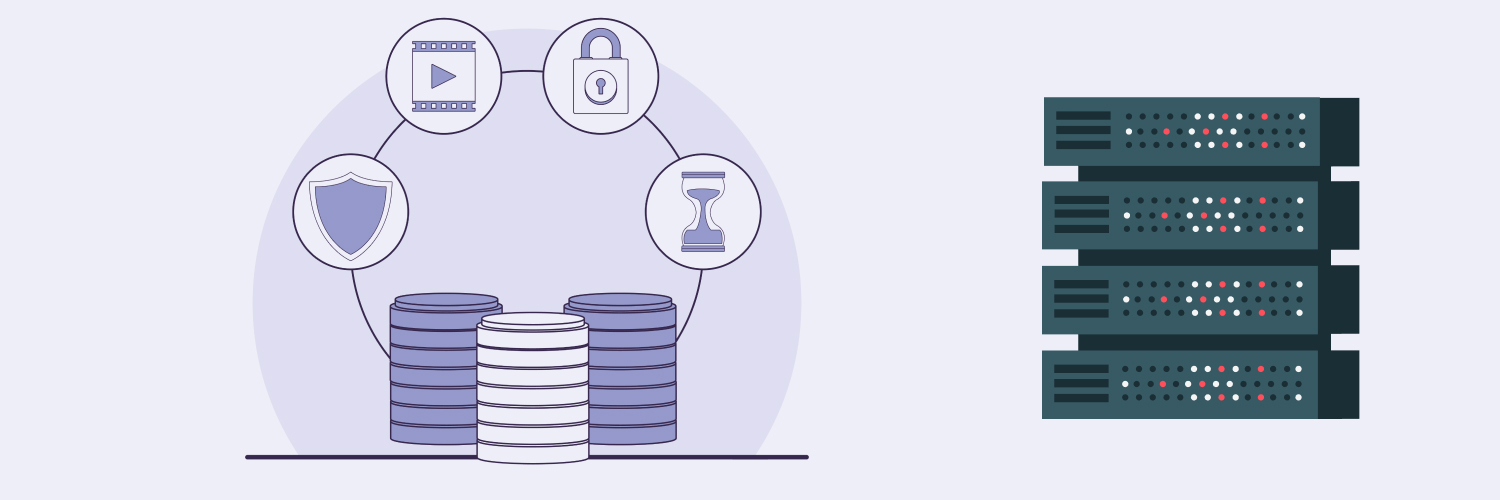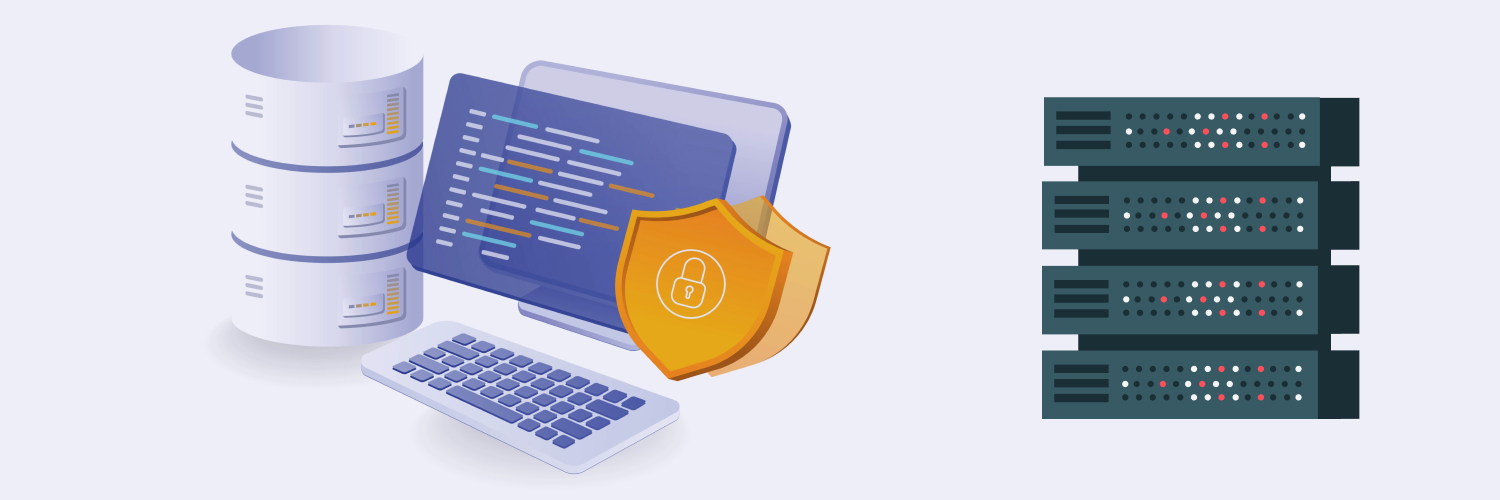The Definitive Guide to Real Estate Data Analytics in 2024
Attention, real estate professionals: there is a veritable goldmine of information at your fingertips. Real estate data analytics is revolutionizing the industry. Examining real estate data, from property details to market trends, serves as the foundation for informed decision-making in the real estate sector.
We will examine the pivotal role of real estate data analytics in the modern property market. We will unravel the intricacies of real estate data and dive into the realm of real estate data analytics, shedding light on why it is an indispensable tool for various stakeholders. We will explore the ways real estate data analytics is reshaping the way we understand, evaluate, and invest in properties.
Join us as we venture into the processes by which real estate data analysts collect this data and reveal the trends that are shaping the future of this field. We’ll also explore the benefits of collecting real estate data using proxies and explain how this data collection method can offer new perspectives to our understanding of the real estate market.
What Is Real Estate Data?

Whether you’re interested in residential or commercial real estate, real estate data provides valuable information about properties. This information usually includes the property’s size, location, and value. Real estate data also gives insights into market trends, buying and selling patterns, and other metrics that can assist people and organizations in making well-informed decisions. Many real estate professionals, including agents, lenders, investors, property managers, and others, rely on this data to gain crucial insights into market trends and identify potential homeowners and properties that show promise.
Real estate data encompasses multiple categories of information, which we will delve into here.
The property
Information about an individual property can encompass details such as:
- Its location, including the address, neighborhood, subdivision, school district, county, and more
- Details on property taxes
- Whether it is part of a homeowners association (HOA)
- Its size, which includes the number of bedrooms, bathrooms, stories, square footage, lot size, and parcel dimensions
- Specific property features, such as the presence of a pool, laundry facilities, basement, heating system, garage, etc.
- The Assessor Parcel Number (APN)
The property owner
Real estate data also offers insights into the current property owner’s status and financial situation. This includes information about pre-foreclosure, bankruptcy, non-owner occupied status, vacant properties, and more. It can also include information about the property owner’s past ownership, the duration of ownership, financing type, and other relevant details.
Financial and mortgage information
By examining property data, you can discover the property owner’s outstanding mortgage balance, original loan amount, the lender they used, the loan type, and the interest rate. You can also uncover details about the owner’s equity in the property, past ownership history, and other financial information.
Property valuation
Examining historical data and running comparisons with similar properties can help estimate the value of a property of interest.
Tax records
Property tax information and tax assessments can provide insights into a property owner’s financial obligations. It can also inform you about the historical trends related to the property’s fair market value.
Real estate market trends
Real estate data analytics can reveal information about the average time that properties in a particular area typically remain on the market, average rental or purchase prices, projected growth in the area, and so on.
Other supporting information
Real estate data can also include additional resources like assessor maps and various analysis reports. These can be valuable when conducting in-depth property analyses.
What Is Real Estate Data Analytics?

Real estate data analytics refers to the process of collecting, analyzing, and interpreting data related to the real estate market. Real estate professionals can analyze this data to gain insights and make informed decisions. Due to the growing availability of data and advancements in technology, data analytics has become increasingly important in real estate and many other industries.
Real estate data analytics can apply to both residential and commercial real estate, although there are some differences in the data and methodologies each category requires. In both residential and commercial real estate data analytics, the goal is to make data-driven decisions that maximize returns, mitigate risks, and enhance overall performance. The specific techniques and data sources will vary based on the type of real estate and the goals of the analysis.
Residential real estate data analytics
Residential real estate data analytics focuses on the housing market. This includes single-family homes, condos, apartments, and other residential properties.
Residential real estate investors often aim for long-term capital appreciation or rental income. Key data points in residential real estate data analytics include property prices, rental rates, inventory levels, neighborhood demographics, and property characteristics. Investors and agents typically evaluate retail properties based on these property characteristics, such as square footage, number of bedrooms and bathrooms, and so on.
Analysts use this data for various purposes, including:
- Tracking trends
- Forecasting property values
- Assessing the suitability of neighborhoods for investment or homeownership
- Analyzing buyer and/or seller behavior
Commercial real estate data analytics
Commercial real estate data analytics concentrates on business properties. These encompass office buildings, retail spaces, industrial facilities, and multifamily apartment complexes.
Commercial real estate may involve more complex financial modeling due to factors like leases, tenant improvements, and property management. Commercial real estate investors may target cash flow and yield, and investment horizons can vary significantly. Commercial properties are assessed based on factors like occupancy rates, tenant quality, and lease terms.
In commercial real estate data analytics, important data points include vacancy rates, lease rates, tenant demographics, location desirability, and property-specific financials, such as net operating income.
Analysts can use this data to:
- Assess the potential return on investment
- Evaluate market demand
- Make decisions regarding property acquisition, leasing, and management
- Conduct market feasibility studies
- Optimize their portfolio
- Assess risk
Who Does Data Analytics in Real Estate Help?

Real estate data analytics can provide valuable knowledge and insights into the real estate market. Armed with this information, almost anyone involved in the industry can make informed decisions. We will detail some of the professionals who can benefit from this data analysis — and how.
Real estate agents and brokers
- Market analysis: Real estate agents and brokers can use data analytics to identify and learn more about local market trends. This information helps them better advise clients on property pricing and timing for buying or selling.
- Lead generation: Data analytics can assist in identifying potential buyers or sellers by analyzing online behavior, social media, and demographic data.
- Client matching: By analyzing client preferences and historical data, agents can provide personalized property recommendations, enhancing customer satisfaction and trust.
Real estate investors
- Risk assessment: Investors can use data analytics to assess the risk associated with a real estate investment. They can evaluate factors like property appreciation, rental income, and market stability to make informed decisions.
- Portfolio management: Data analytics can help investors track the performance of their real estate portfolio, optimize rental rates, and identify underperforming properties.
- Pricing: Using real estate data analytics, investors can determine a fair asking price to sell or rent their property after renovating or “flipping” it.
Mortgage lenders
- Credit scoring: Real estate data analytics enables more accurate credit scoring and risk assessment, which can result in more informed lending decisions.
- Market forecasting: Lenders can use data analytics to assess the economic conditions and real estate market trends, helping them determine appropriate lending terms and interest rates.
- Lead identification: With real estate data analytics, lenders can dig up client opportunities of all types, such as an existing homeowner who may need a home equity loan, someone who needs to refinance a mortgage with a high interest rate, or a commercial organization that may seek expansion opportunities.
Contractors
- Demand forecasting: Real estate data analytics help contractors anticipate demand for construction and renovation projects in specific regions, allowing them to optimize resource allocation.
- Cost estimation: Contractors can use data analytics to estimate project costs more accurately, resulting in more competitive bids and improved profitability.
- Potential client determination: Data analytics can help contractors investigate which properties or homeowners are most likely to require their services.
Appraisers
- Property valuation: Real estate data analytics can provide appraisers with a wealth of information about a given property or market. This information can include recent sales data, property characteristics, and market trends, helping them determine property values more accurately.
- Comparative analysis: Appraisers can use data analytics tools to compare properties and identify discrepancies or outliers that may affect the appraisal.
Property managers
- Maintenance planning: Proactive property managers can use data analytics to predict when maintenance will be needed in rental properties. This could potentially reduce the likelihood of costly emergency repairs.
- Rental rate optimization: By analyzing local rental data, property managers can set competitive rental rates and adjust them in response to market fluctuations.
Big Data Analytics for Real Estate: Use Cases

When analyzing vast amounts of real estate data, there are a number of ways to use the information you collect. We will go into some of the possible use cases of big data analysis within several categories of information available in the real estate industry.
Property searches
Real estate websites and apps can use data analytics to provide prospective buyers and renters with personalized property recommendations based on their preferences, search history, and location. Real estate data analytics can offer insights into neighborhoods, including crime rates, school quality, amenities, and transportation options, to help buyers make informed decisions. Agents and brokers can also analyze data to locate properties matching their clients’ desired price range, preferred locations, and required features.
Property valuation
Real estate data analytics can power Automated Valuation Models (AVMs) to estimate property values by analyzing historical sales data, property characteristics, location factors, and market trends. Real estate professionals can use data analytics to create more accurate Comparative Market Analyses (CMAs) by comparing a property to similar recent sales and market conditions. Additionally, analytics can show how specific improvements or renovations can affect a property’s value.
Real estate marketing
Real estate marketers can use data analytics to target their advertising campaigns more effectively, reaching potential buyers or sellers based on demographics, online behavior, and interests. Analytics can help marketers with content optimization so they understand which types of content, such as photos, videos, or virtual tours, prospective clients find most engaging. Lead scoring models can identify the most promising leads, enabling agents and brokers to prioritize their efforts.
Property development
Developers can use data analytics to identify optimal locations for new real estate projects by considering factors like population growth, demographics, and economic trends. Real estate data analytics can assess the demand for specific property types (such as residential, commercial, or industrial) in a given area, helping developers make strategic decisions. Predicting construction costs is another way developers can leverage data analytics, taking into account labor, materials, and market fluctuations.
Risk assessment
Lenders use data analytics to evaluate the creditworthiness of borrowers for mortgage loans, considering credit scores, income, debt, and payment history. Investors and lenders can assess the market risk associated with real estate investments by analyzing historical trends, economic indicators, and potential fluctuations in property values. Analytics can even predict the likelihood of borrowers defaulting on their mortgages, enabling proactive risk management.
Market trend analysis
Real estate professionals can use data analytics to track price trend data over time, identifying where property values are increasing or decreasing. Real estate data analytics can help in understanding the supply and demand dynamics in the market, aiding in pricing and inventory management. Also, real estate analysts can use analytics to build predictive models to forecast future market conditions, allowing for proactive decision-making and strategy adjustments.
How Do Real Estate Data Analysts Collect This Data?

Analysts can collect good datasets for data analysis from a number of sources.
Public records
Official public documents contain a large amount of property information. From public records, you can glean sales history, property ownership, taxes, zoning, permits, and more. Many government agencies and third-party public data sources make public records available online.
Multiple listing services (MLS)
Databases called multiple listing services, or MLS, contain information about properties that real estate agents or brokers have listed for sale or rent. These listings contain a great deal of information about properties, including each property’s location, size, features, price, and photos. Many MLSs are available to access online through real estate organizations and third-party providers.
Online real estate portals
Countless websites and apps exist where prospective owners or renters can find information about properties. These listings may belong to property owners, real estate platforms, agents, or brokers. Often, these websites aggregate the listings from various platforms. Using these websites, you can obtain a wide variety of information about available properties, including location, features, price, size, and even ratings and reviews by former renters or other local property owners.
Social media and online behavior
Data analysts can analyze social media posts, online reviews, and user behavior on real estate websites to gain insights into trends, sentiment, and user preferences.
Survey and questionnaire data
Some real estate industry organizations and companies conduct surveys and questionnaires, which can provide information on consumer preferences, housing market sentiment, and the demand for specific property features.
Property inspection reports
Data analysts may gather information from property inspection reports to assess the condition of properties, identify potential issues, and estimate repair costs.
Government agencies
Government agencies, such as the U.S. Census Bureau and the Bureau of Labor Statistics, provide demographic data, economic indicators, and information on housing starts, construction permits, and more.
Online data providers
There are data providers that specialize in real estate data and offer comprehensive datasets. Some of this data may include historical property sales, rental market data, property characteristics, and neighborhood information.
Satellite and aerial imagery
Aerial and satellite imagery can be used to assess property and land characteristics, monitor land use, and track changes in the built environment.
Internet of things (IoT) devices
The Internet of things (IoT) is a network of physical devices with sensors and other technologies that connect to the internet and can collect and exchange data. Such devices and sensors in smart homes and buildings can provide real-time data on energy usage, temperature, and security, which may be relevant to property analysis.
Real Estate Investment Trust (REIT) filings
Analysts may examine filings and reports from real estate investment trusts (REITs) to understand their portfolio holdings and financial performance.
Local economic data
Information on local economic conditions, employment rates, income levels, and industry growth can impact the real estate market. Analysts may collect this type of data from government sources and economic research reports.
Trends in Real Estate Data Analytics

In the coming year, technology will continue to transform the real estate industry and, in particular, real estate data analytics.
Artificial Intelligence (AI)
Artificial Intelligence (AI) is shaping the future of almost every area of our lives. AI involves using machines or software to do things that typically require human intervention. AI can make real estate data analysis faster, smarter, and more precise. It can also automate certain tasks, such as property searches, property valuation, and so on.
Blockchain technology
Blockchain is a decentralized, secure, and transparent digital ledger technology used to record and verify transactions across multiple computers. This technology will shake up real estate data analytics in multiple ways:
- Ensuring the integrity and transparency of data sources
- Reducing the risk of fraud and errors in property transactions
- Streamlining the process of recording and verifying property ownership and history
This enhanced data reliability can lead to more accurate property valuations, improved trust among stakeholders, and increased efficiency in real estate transactions.
The Internet of things (IoT)
IoT, which we mentioned earlier, generates real-time data about a number of property factors. For example, IoT can provide information about security systems, temperature control, energy consumption, and so on. This has the potential to enable more informed decision-making, predictive maintenance, and the development of smart properties for improved efficiency and safety.
Benefits of Collecting Data Using Proxies

An excellent way to gather big data for real estate data analysis is by using a web scraper in conjunction with proxies. A web scraper like our partner, Scraping Robot, is a program or script that automates data extraction from websites. Proxies act as intermediaries between your computer and the websites you want to scrape. By using proxies, you can access these websites without revealing your own IP address, which helps prevent IP bans or access restrictions.
It’s important to note that while web scraping can offer significant benefits, it should be done ethically and in compliance with legal and ethical guidelines. Websites may have terms of service or terms of use that prohibit scraping, so it’s essential to be aware of these and respect them. Rayobyte offers a variety of web scraping tutorials and scraping proxies.
There are multiple benefits of collecting real estate data using a web scraper and proxies. Some of these include the following.
Speed, convenience, and cost-effectiveness
Web scraping circumvents the need to collect a massive volume of data manually. Proxies enable parallel data collection by making multiple requests to websites simultaneously. This can significantly speed up the data-gathering process, saving both time and resources.
Leverage opportunities and trends
Web scraping with proxies allows you to monitor competitors’ pricing, product listings, and marketing strategies, helping you maintain a competitive edge. You can track market trends, customer sentiment, and emerging opportunities by scraping data from social media, forums, and news sites.
Accurate real-time data
Continuously monitoring proxies and web scrapers will ensure that you receive up-to-date data in real time. Also, web scraping automation reduces the risk of human errors that can occur when manually collecting and recording data.
Scalability
Proxies and web scrapers are scalable, meaning you can expand your data collection efforts to cover a wide range of websites and sources without a proportional increase in labor.
Data integration
You can integrate scraped data into your internal systems, databases, or analytics tools. This can make it easier to analyze the data, derive insights, and make data-driven decisions.
Real Estate Data Collection Using Proxies

Thanks to the power of real estate data analytics, the real estate industry is poised to undergo a remarkable transformation. From property details to market trends, real estate data has become the crux of informed decision-making in the industry. As we’ve explored the intricacies of real estate data analytics, it’s evident that this tool is indispensable for various stakeholders, reshaping how those involved understand, evaluate, and invest in properties.
It’s crucial to emphasize the immense value of collecting real estate data using proxies. Proxies, in collaboration with web scrapers, offer a fast, cost-effective, and ethical approach to amassing the vast amounts of data required for comprehensive analysis. This method not only provides real-time, accurate information but also enables you to take advantage of opportunities and market trends while maintaining peak data integrity. For real estate professionals, embracing the power of scraping real estate data with proxies is not just a recommendation; it’s a golden opportunity to stay ahead in a rapidly evolving industry.
Rayobyte offers the world’s most reliable proxies for web scraping and various other uses. Start your free Rayobyte proxy trial today!
The information contained within this article, including information posted by official staff, guest-submitted material, message board postings, or other third-party material is presented solely for the purposes of education and furtherance of the knowledge of the reader. All trademarks used in this publication are hereby acknowledged as the property of their respective owners.






